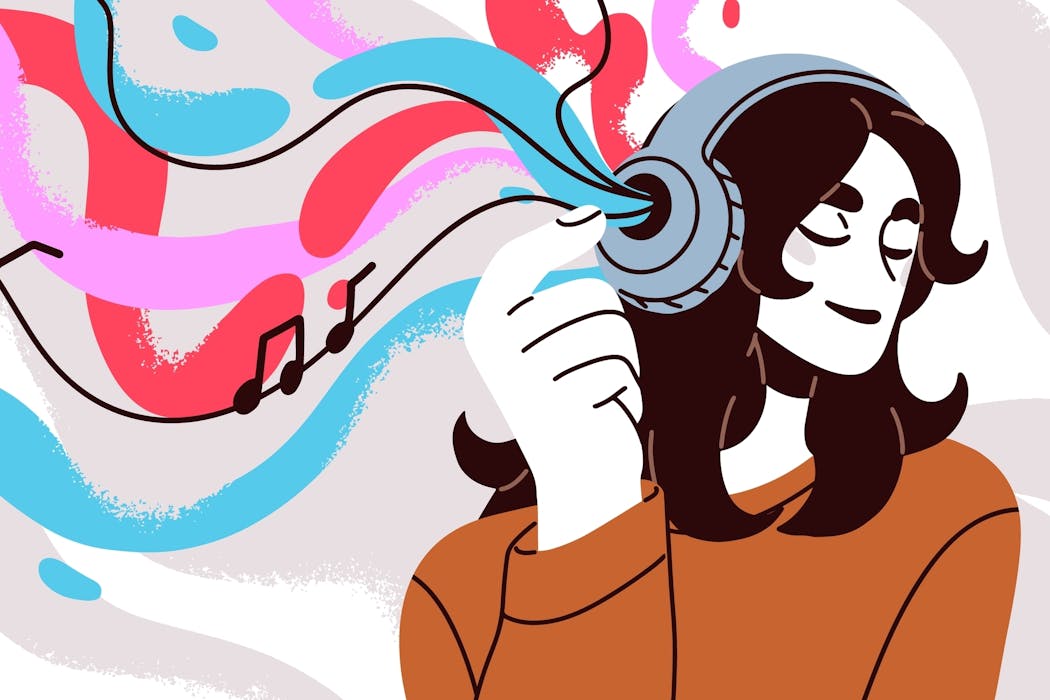Music therapy is a form of therapy that uses music to address physical, emotional, cognitive, and social needs of individuals. It is a well-established and evidence-based practice that has been shown to be effective in treating a wide range of conditions, including anxiety and depression. Music therapy can be used with people of all ages and abilities, and can be delivered in a variety of settings, including hospitals, schools, and community centers.
Music therapy is based on the idea that music has the power to affect our emotions, thoughts, and behaviors. It can be used to help individuals express themselves, improve their mood, reduce stress, and enhance their overall well-being. Music therapists are trained professionals who use a variety of music-based interventions to help their clients achieve their therapeutic goals. These interventions may include listening to music, playing instruments, singing, songwriting, and movement to music.
The Role of Music in Managing Anxiety and Depression
Music has long been recognized for its ability to affect our emotions and mood. It has the power to calm us down, lift our spirits, and provide a sense of comfort and connection. For individuals struggling with anxiety and depression, music can be a powerful tool for managing their symptoms and improving their overall mental health.
Research has shown that listening to music can have a positive impact on anxiety and depression. It can help to reduce feelings of stress and tension, promote relaxation, and improve mood. Music can also provide a distraction from negative thoughts and feelings, and can help individuals to feel more connected to others. In addition, playing or creating music can be a form of self-expression and can provide a sense of accomplishment and purpose.
How Music Therapy Works
Music therapy works by using music-based interventions to address the specific needs of individuals. These interventions are tailored to each person’s unique preferences, abilities, and therapeutic goals. Music therapists use a variety of techniques to engage their clients in music-making activities, such as playing instruments, singing, and movement to music. They may also use recorded music as a tool for relaxation or emotional expression.
Music therapy is based on the idea that music has the power to affect our emotions, thoughts, and behaviors. It can be used to help individuals express themselves, improve their mood, reduce stress, and enhance their overall well-being. Music therapists are trained professionals who use a variety of music-based interventions to help their clients achieve their therapeutic goals. These interventions may include listening to music, playing instruments, singing, songwriting, and movement to music.
Benefits of Music Therapy for Anxiety and Depression
There are many benefits of music therapy for individuals struggling with anxiety and depression. Music therapy can help to reduce feelings of stress and tension, promote relaxation, and improve mood. It can also provide a distraction from negative thoughts and feelings, and can help individuals to feel more connected to others. In addition, playing or creating music can be a form of self-expression and can provide a sense of accomplishment and purpose.
Research has shown that music therapy can be an effective treatment for anxiety and depression. It has been found to reduce symptoms of anxiety and depression, improve overall mood, and enhance quality of life. Music therapy can also help individuals to develop coping skills and improve their ability to manage stress. In addition, it can provide a sense of comfort and support during difficult times.
Types of Music Therapy Techniques
There are many different types of music therapy techniques that can be used to address the specific needs of individuals struggling with anxiety and depression. These techniques may include listening to music, playing instruments, singing, songwriting, and movement to music. Music therapists may also use recorded music as a tool for relaxation or emotional expression.
Listening to music is one of the most common techniques used in music therapy. Music therapists may use recorded music to help individuals relax, reduce stress, or improve mood. They may also use specific types of music to evoke certain emotions or memories. Playing instruments is another important technique in music therapy. Individuals may be encouraged to play instruments as a form of self-expression or as a way to release tension and stress.
Incorporating Music Therapy into Treatment Plans
Music therapy can be incorporated into treatment plans for individuals struggling with anxiety and depression in a variety of ways. It can be used as a stand-alone treatment or in combination with other forms of therapy, such as counseling or medication. Music therapy can be delivered in individual or group settings, depending on the needs and preferences of the individual.
Incorporating music therapy into treatment plans can help individuals to develop coping skills, improve their ability to manage stress, and enhance their overall well-being. It can also provide a sense of comfort and support during difficult times. Music therapy can be tailored to each person’s unique preferences, abilities, and therapeutic goals, making it a highly individualized form of treatment.
Finding a Music Therapist
If you are interested in exploring music therapy as a treatment option for anxiety and depression, it is important to find a qualified music therapist who is trained in using music-based interventions to address mental health needs. You can start by asking your healthcare provider for a referral to a music therapist in your area. You can also search for music therapists online through professional organizations such as the American Music Therapy Association.
When looking for a music therapist, it is important to consider their training, experience, and approach to treatment. You may want to schedule an initial consultation with a few different music therapists to find someone who you feel comfortable working with. It is also important to discuss your specific needs and goals with the music therapist to ensure that they are able to provide the type of support that you are looking for.
In conclusion, music therapy is a powerful and effective treatment option for individuals struggling with anxiety and depression. It can help to reduce feelings of stress and tension, promote relaxation, improve mood, and provide a sense of comfort and support. Music therapy uses a variety of techniques, such as listening to music, playing instruments, singing, songwriting, and movement to music, to address the specific needs of individuals. It can be incorporated into treatment plans in a variety of ways and can be delivered in individual or group settings. If you are interested in exploring music therapy as a treatment option for anxiety and depression, it is important to find a qualified music therapist who is trained in using music-based interventions to address mental health needs.
Find out how Torongo Therapyplus can help you with your needs. Get in touch with us at smile@torongo.life, or call us on 02 8809 9965.































